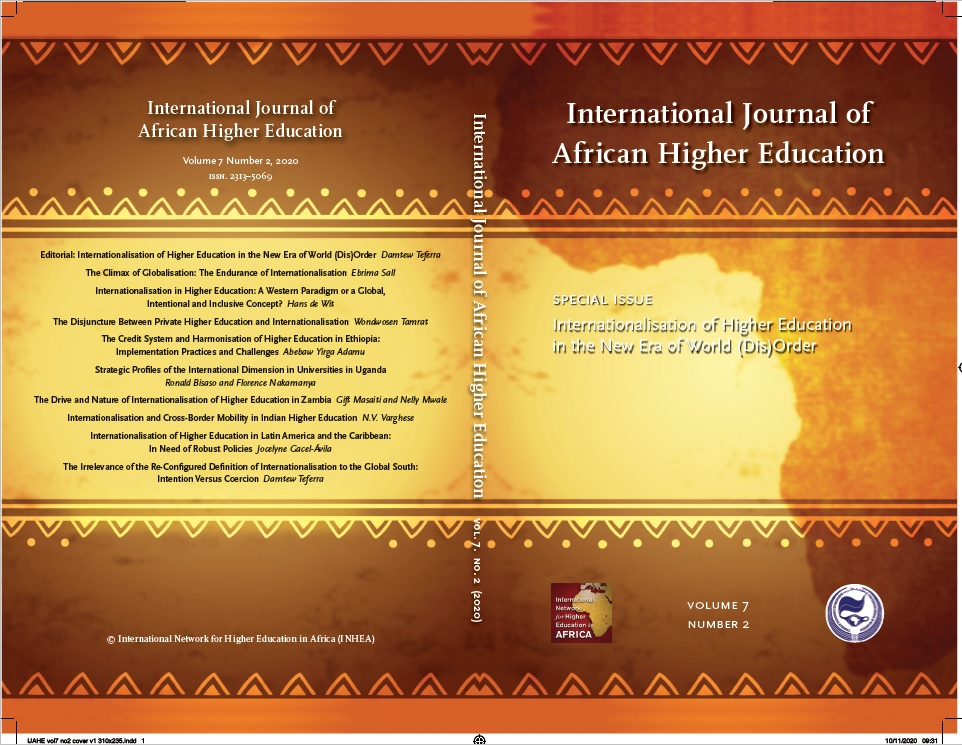The Drive and Nature of Internationalisation of Higher Education in Zambia
DOI:
https://doi.org/10.6017/ijahe.v7i2.12899Abstract
While internationalisation of higher education is a topical issue in global
scholarship, it attracts limited scholarly attention in the Zambian context.
This article engages with the drive and nature of internationalisation of
higher education in Zambia. Informed by a descriptive multi-site case study
of six higher education institutions (public and private) in which data were
collected through document analysis, interviews, and questionnaires, the
article shows that internationalisation was largely motivated by economic,
academic, and social and cultural factors. While limited and constrained,
it was characterised by student and staff mobility, teaching and learning
resources, and research and collaboration, with the context of Zambian
higher education shaping the motives for and nature of internationalisation.
The article also argues that limited funding had implications for the
internationalisation of higher education in Zambia.
Downloads
Published
How to Cite
Issue
Section
License
Copyright (c) 2020 Gift Masaiti and Nelly Mwale

This work is licensed under a Creative Commons Attribution-NonCommercial-NoDerivatives 4.0 International License.

